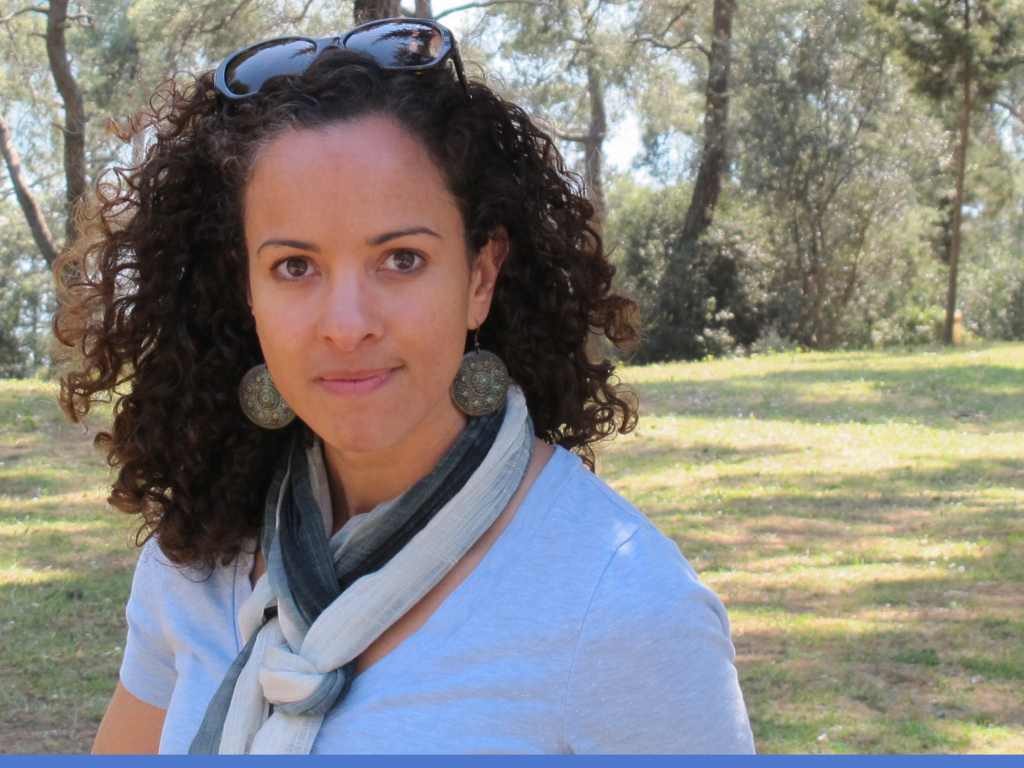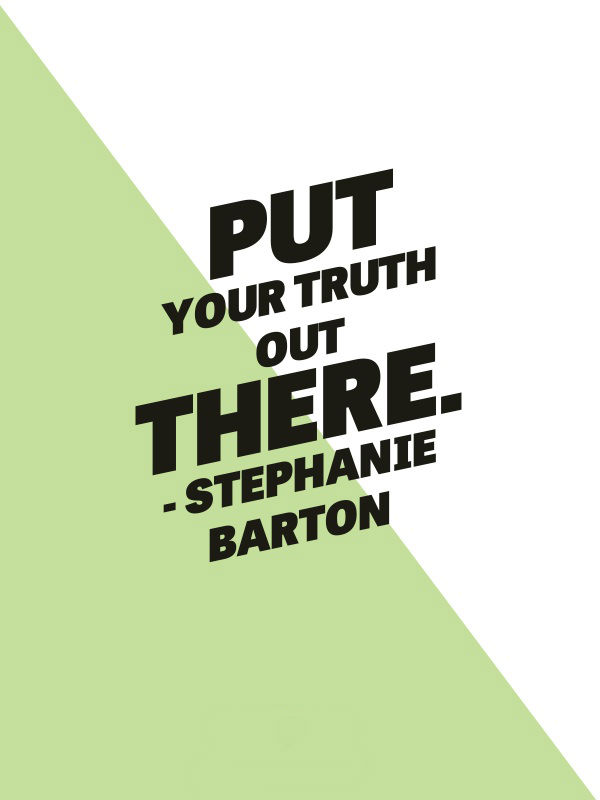Hey folks! Welcome back! This week, we take the conversation back to New Mexico where Stephanie Barton has busied herself within the art community of Albuquerque. She read an essay at the ABQ Fundraiser to help fundraise for Third Woman Press (remember the incredible Myrriah Gomez, co-organizer of that fundraiser?), read on for more on this awesome womyn!
Third Woman Press Collective (TWPC): Hey there, Stephanie! We’re stoked to be able to talk with you today! Let’s start with your geographic location.
Stephanie Barton (SB): I’ve lived in Albuquerque, New Mexico for four and a half years. It’s the longest I’ve lived anywhere in the last two decades, though. My husband was in the military so we moved every two or three years: from New York to Texas, Washington, Germany, then Hawaii. Now that I’ve been settled in one place for a while, I’m getting antsy.
TWPC: Wow, twenty years of moving! That is quite a lifestyle change. How do you define your feminism?
SB: For me feminism comes to down to respect for choice, in the many forms it takes. Yes, of course, I’m using that word in the context of reproductive rights and family planning. But I feel there’s a lot of politics around basic lifestyle choices, too. Whether you marry or whether you don’t. Whether you have children or not. Whether you pursue a career or raise kids or go off into the woods and meditate for three years. These are all personal decisions, yet they can be divisive: not just with your family, but the political public and media think they have a say as well.
TWPC: That’s a great point, feminism definitely emphasizes the power of choosing things for yourself. So, what keeps you busy?
SB: I’ve been a freelance editor in the business and tech industry for a long time, but I’m trying to focus now on literary writing. I recently earned my MFA from Vermont College of Fine Arts. I chose a low-residency program to learn how to integrate writing into my daily routine. But even though I didn’t study in a traditional classroom, VCFA gave me a scaffolding that I miss. So I’m trying to figure out how to keep up that momentum. I write about relationships, loss, identity—which can be intense and exhausting. When I’m not writing, I read a lot. A lot. Because the reading feeds the writing. To give back to the literary world, I volunteer as a proofreader for Project Gutenberg, which is an online initiative to digitize literary works that are in the public domain.
TWPC: Congrats on getting your MFA! That’s awesome. We’re glad you’re getting more in touch with your writing, and wish you the best of luck! Project Gutenberg sounds like a badass organization. We’re stoked to hear about your involvement with making literature accessible. What influenced your decision to help fundraise for Third Woman Press?
SB: Myrriah Gomez, one of the event organizers, is a friend I met through running. She told me about the event, and asked if I was willing to read my work that night. She explained the history of Third Woman Press and sent me links to videos and work by the other participants. I wanted to get involved because I supported the goals for Third Woman Press: to make underrepresented work available and to promote women artists of color. And, if you know Myrriah, she’s very passionate, really engaged with art, literature, education. I wanted to support her efforts—be a part of something she was developing. Participating in the reading was also a chance to get my work in front of a completely new audience, and learn from that.
TWPC: Yes, Myrriah is one amazing woman. We’re so thankful for your, hers, and everyone else’s contributions! What was your favorite detail, performance, interaction, etc., from the fundraiser you participated in?
SB: I was part of the Albuquerque fundraiser at ArtBar, which was a really casual environment, a little different from the quiet spaces where you usually do readings, and it was a good attempt at bringing together the lit world with the bar scene. Most of the women who read that night were poets—each had a distinct tone, performed pieces that covered a wide range of topics, from environmentalism to the politics of relationships. They were angry and funny, thoughtful and bold.
TWPC: We so wish we could have been there! That sounds like such a cool environment. What kinds of tips do you have for emerging feminist artists?
SB: I’m kind of an emerging artist myself, so my main tips would be to hone your craft and persevere. Read to expand your literary world. Beyond that, the same quote has been coming my way in the past few months, and I’m starting to feel like it’s a sign. It’s a statement by Muriel Rukeyser, “What would happen if one woman told the truth about her life? The world would split open.” Put your truth out there. The publishing world is in the middle of heated debates about whether it’s producing the books the public wants and needs for us to understand the time we live in, whether the voices of women and of people of color are being heard. Change is coming.
TWPC: The feels, Stephanie. The feels. That was a beautiful answer. That is exactly why we are working so hard to reboot Third Woman Press! Is there any specific area, field, or place that you feel really needs a feminist intervention right now?
SB: I’m in a field (creative nonfiction and especially memoir) that is highly criticized and misunderstood, or just ignored. Some critics dismiss memoir as sensationalist. Yeah, there are some well-known memoirs out there that are pretty sensational, but they don’t define the genre. The general public thinks of memoir as celebrity memoir, which isn’t memoir at all, but autobiography.
Which then makes people ask a writer, especially an everyday woman, who says she’s writing a memoir, “Well who are you to write the story of your life? Who cares?” But memoir has all kinds of angles and approaches, just like fiction. It’s about exploring a place, a relationship, an issue—not recording every event in your life in a boring chronology.
Memoir is dominated by women writers, and there are some who believe that’s why it goes largely ignored by mainstream publishing. Memoirists often have troubling stories to tell or they are questioning societal norms. Because those stories examine what happens behind closed doors, there’s a reflex to call it vulgar. There’s still a lot of pressure to keep your mouth shut if you are writing about abuse or conflict, or even if you challenge everyday codes of family and community. We need women to write these stories, to share these stories; we need readers to make the commitment to read them.
TWPC: You have excellent points, and this is something that goes largely undiscussed. More value needs to be placed on the work of women, including any work done at home, at work, and especially creative works. Well, Stephanie, what do you like to do for fun?
SB: In undergrad I was an art major, so I still find art classes and workshops to stay with that first passion. I go into a zone with writing but my writing is often where I put tension on the page. I get meditative with art. Here in Albuquerque I’ve taken courses at UNM, New Grounds Print Workshop, Coyote Clay. Pottery is especially relaxing, probably because I’m not all that good at it and I don’t mind, I just enjoy the process. Lately I’m spending a lot of time studying art journals and altered books.
I also like to travel. I take trips with my husband almost every month, to see a new place, go to a conference, get out of town. We’ve been doing this for as long as we’ve been together; when we lived in New York we’d get up in the middle of the night and drive to the Jersey Shore. In Germany we’d go to Belgium for the day to check out a coffee shop I’d read about.
TWPC: Those all sound like great things, we’re glad you’re finding relaxation in your art and adventure with your husband. Right on! Since you helped TWP raise money, what is one thing that excited you about the revitalization or what would you like to see TWP do overall?
SB: I liked the idea that TWP was republishing books that had gone out of print. I’d like to see the press find a good collection of voices to publish who represent a full spectrum of feminist views.
TWPC: We’re always on the look out for fresh, strong voices! Thanks again for taking time out for us, Stephanie!
Many thanks and positive vibes to Stephanie in New Mexico! To read up on a recently published essay of hers, go here. As always, we thank our readers for your support, and hope you stay tuned for more Feminist Fistbumps! See you next time!



